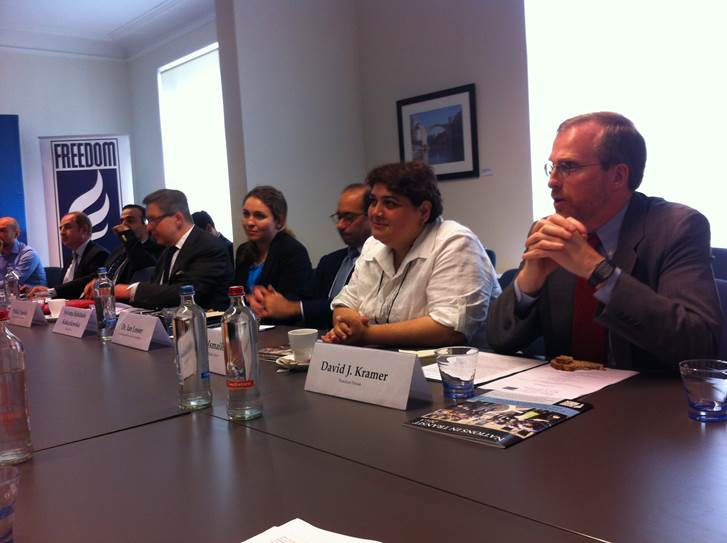‘Democracy Recession’: Fragile State of Human Rights and Rule of Law in Russia Highlighted by Freedom House Report

The rapid and continuing deterioration of the rule of law in Russia over the past year – during which Vladimir Putin returned to the presidency – featured prominently in the ‘Nations in Transit’ report presented today in Brussels by the internationally renowned human rights organisation Freedom House.
Speaking to an audience of European Union officials, diplomats, activists, journalists and academics, Freedom House president David Kramer highlighted the report’s focus on steps taken by the Russian authorities to restrict the activities of civil society organisations
The report, entitled ‘Nations in Transit 2013: authoritarian aggression and the pressures of austerity’, can be read here.
The report was launched in conjunction with the German Marshall Fund of the United States.
The report notes the drastic decline in governance in Russia during the past year, noting that “governance institutions in the region’s autocracies grew more dysfunctional, less independent, and more prone to corruption. In this grim environment, Russia served as vanguard and model.”
The report denounces Russia’s recent efforts to silence civil society organisations and limit external funding for them, stating that “while previous measures have sought to obstruct or constrain Russian civil society, the new round of initiatives were designed to neuter or eliminate any groups that dealt even tangentially with political or public-policy matters.”
And in a veiled reference to Mikhail Khodorkovsky’s politically-motivated prosecution, the report states that “in waging war against civil society, Putin was aided by the control over the legislature, the media, and the judiciary that he had already achieved during his 13 years as the country’s paramount leader.”
To round off a grim assessment of human rights and the rule of law in Russia, the report laments the forthcoming Winter Olympics in Sochi, stating that “the more fundamental question of why authoritarian Russia was awarded the privilege of hosting the world’s most important sporting event has receded into the background, as it did in 2008, when the Summer Olympics were held in China.”



